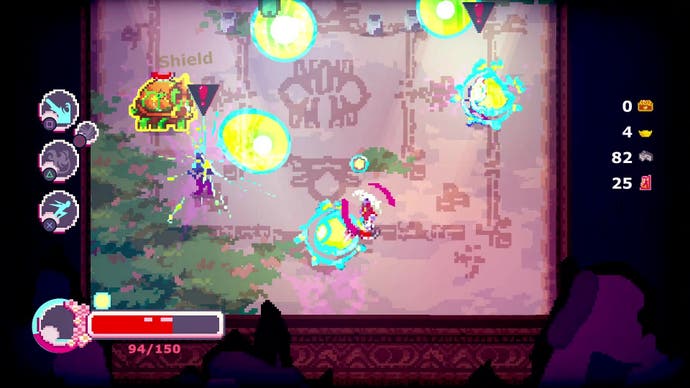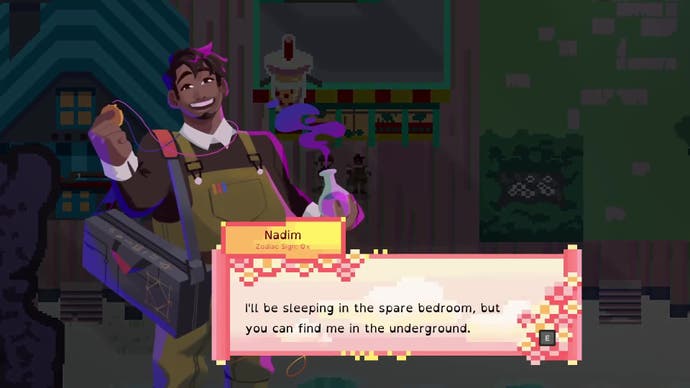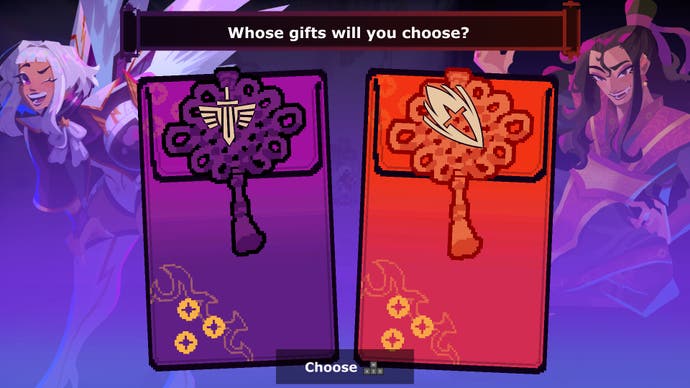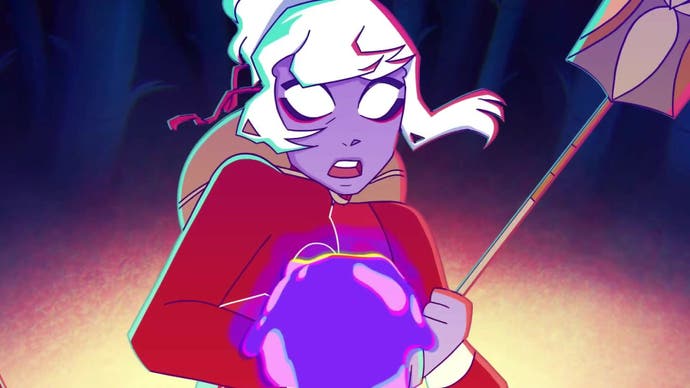Midautumn builds upon Hades to explore an Asian diaspora experience
On telling the types of stories that are "harder to tell".
Hello! Since today sees the celebration of 2023's Mid-Autumn Festival, we decided to take another look at Midautumn, which Liv wrote about beautifully back in June. Enjoy!
Roguelikes have a hell of a reputation: unforgiving, inscrutable, and not for the faint of heart. After all, the genre is a lineage of games that emerged from Rogue, an ASCII game known for being notoriously challenging. But the genre's penchant for loops and repetition - which stems from its games' deadly combination of brutal combat, limited health and permadeath—also makes it a rather unorthodox medium for developers looking to deliver a narrative-driven experience. This is a mould that the roguelike Hades has already broken with its atypical accessibility and multi-layered storytelling, and it's this particular formula that Midautumn is inspired by. To its team of developers, Hades has paved the way for the game to impart a story about an Asian diaspora community, faced with the threat of gentrification.
"We were very excited by the idea of roguelikes in telling stories, in types of stories that are harder to tell," says creator Sherveen Uduwana. "What [Hades] opened up for us was, suddenly there are a lot more people that are familiar with some of these conventions and mechanics of how you tell stories in roguelikes, so it's doing some heavy lifting for us in being able to tell a less well-tread story in games."
On the surface, Midautumn bears some striking resemblance to Hades with its evil spirits, celestial beings (albeit those based on Chinese mythology), and the roguelike loop. But the similarities pretty much conclude there. By contrast, Midautumn is a slower-paced game than Hades, and this is due to its combat system, which can feel unwieldy at first for the uninitiated - and for roguelike veterans. The core of its attacks is a curious form of energy called Lunar Blood. It's what you'll use to retaliate against enemies, but you'll need to absorb your enemies' Lunar Blood projectiles before you can deal any damage. In other words, attacking enemies means first taking hits - but not necessarily damage - from them. It can seem a tad counterintuitive for seasoned roguelike players who are inclined to avoid blows, but Uduwana points out that this design is deliberately skewed towards new players who aren't well-versed in the genre, as well as action games that demand a lot of dexterity from players.
"One of our initial design goals with Midautumn was we wanted to make a game that was more accessible to people that don't play action games, because we realised there are a lot of folks that were interested in the type of story that we're telling that aren't big, actiony game players," says Uduwana. "So the additional step that we did on top of that was we decided to make a combat system that was completely different from what is typical, [such that] there's a kind of blank slate for everyone who's coming in."
Through early playtests on Midautumn, the team realised that new players tend to play in a very conservative manner, which is, according to Uduwana, "not really the fun way to play a lot of these types of games". To encourage players to take more risks, the developers tweaked combat encounters in Midautumn to compliment the playstyles the team saw in newer players during these tests.
That said, this doesn't make Midautumn any easier to master, as the game is rife with a nearly dizzying list of rules. For instance, holding on to Lunar Blood for too long will make it rot, which will inflict damage on yourself. Hoarding too much blood, too, will cause you to take significant damage, while preventing you from absorbing fresh Lunar Blood. This is a significant obstacle since attacking enemies with rotten Lunar Blood will also sap your health, which can spell certain death.

Midautumn does dole these details out incrementally, but there's a sense that these can still be a lot for players to digest. Nonetheless, Uduwana is optimistic about this system. "I think it's really cool to see folks who normally don't play these types of games really getting into the complex parts of strategy and thinking about builds and doing all those things," he says.
Then there's a thematic aspect to this design of reflecting your enemies' attacks back at them; it's very much reminiscent of the moon. After all, the game is named after the Mid-Autumn Festival, with this centred on the Moon goddess Chang'e from Chinese legends. "The idea of reflecting your enemies' attacks back at them felt very compelling from a symbolic, thematic standpoint since there's a lot of moon imagery in our game already," he adds.
The moon theme, the combat and the lingering influence of Hades all underpin the overarching story in Midautumn: a tight-knit Asian diaspora community based in a fictional town called Nambo Quay. As Robin Lam, you're here to dispel wayward spirits at the behest of your grandmother. At the same time, you'll meet the colourful inhabitants of this quiet town, as well as ancestral spirits looking to offer you gifts that will aid you in combat. This is set amidst the unceasing waves of gentrification shaping Nambo Quay, with Robin's grandmother resisting persistent offers to sell her ancestral home, and the game culminating at the Mid-Autumn festival.


These experiences stem from the diasporic identities of the Midautumn developers. "We really started from our own frame of references just to start. So we have a team that were all from different parts of the Asian diaspora. We have folks who are primarily Chinese, folks who are from the Philippines... I'm from Sri Lanka, but I kind of grew up in a lot of different places around Asia," says Uduwana.
Likewise, Nambo Quay itself is born from the team's own experiences living within diaspora communities. In Midautumn, there's a family-run boba tea shop that has been in business in Nambo Quay for the longest time. As Robin points out half-jokingly in the game itself, this is despite the shop probably violating several labour laws, with the owner employing her own children as workers.
Other residents whisper of gradual shifts in lifestyles, as the town evolves from being a quiet neighbourhood to the next urban centre—and with Nambo Quay becoming prime real-estate for wealthy businessmen and urbanites. These are familiar anecdotes for many Asian diaspora, which makes Nambo Quay feel immediately intimate and authentic.
"We really wanted it to feel like the town in the game is not necessarily a place that exists in real life, but it's a place that feels correct to us from our experiences," says Uduwana. "We wanted it to feel real and specific to us, and people who are playing it as well. I think [this will help players] make that connection with the town, that it reminds them of other places that they've been to, and [...] that it isn't just a surface level examination of those spaces."










